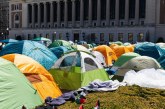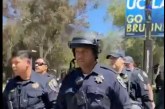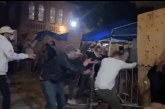

By Barry Broome and Justin Siegel
The Sacramento region is working diligently to regain its footing after COVID-19 swept the nation. One of the key projects to our regional recovery is the Davis Innovation and Sustainability Campus, made possible through the passage of proposed Measure B.
As President & CEO of the Greater Sacramento Economic Council and a faculty entrepreneur, we support Davis residents in forging the right partnership between DISC and their economic future. DISC provides a bold vision for its community and will be powered by 100% renewable energy with a net zero carbon footprint. This forward-thinking project is planned and zoned to empower UC Davis technologies, entrepreneurs and innovators.
The Davis community is a shining star in our region and one of the most respected and educated cities in the Golden State. Davis residents are thoughtful, creative and expect development projects to be reflective of their community composition.
As the community of Davis continues to thrive and enjoys a 78% college education attainment rate, the broader region lacks these same educational statistics. Providing viable and gainful opportunities to  keep the talented Davis alumni in the region is a win-win for everyone.
keep the talented Davis alumni in the region is a win-win for everyone.
Measure B will provide the opportunity to capture and leverage commercial technologies while stimulating job growth to help offset the very difficult economic position that exists throughout our region.
Throughout the United States, universities stimulate the economy of its surrounding communities. Numerous successful models prove this type of coordination works; Research Triangle Park in North Carolina and University Research Park in Madison, Wisconsin, are just two great examples.
Our region continues to lag behind the achievements of similar universities when measured by inclusive economic performance jobs. Why? Those communities have built specialty real estate and infrastructure developments, such as labs and technology parks, in close proximity to a campus bustling with students providing a vision for a potential future from their academic efforts that they may not have realized is even possible. This close proximity is critical for empowering both students and faculty in their quest to improve the human condition.
DISC is a natural partner with Aggie Square and the Food and Agriculture Innovation Park in Woodland. Davis residents have always been visionaries in their perspective on the world. We need the residents of Davis to join us in empowering our great universities, bringing to life the inventions of students and faculty, keeping accomplished college graduates in the community and catalyzing an economy that is sustainable.
We encourage Davis residents to join us in a regional effort to address economic inequities and help us fight climate change. DISC is a critical step in that direction.
Barry Broome is President and CEO of the Greater Sacramento Economic Council, a catalyst for innovative growth strategies in the Capital Region of California. Barry is responsible for leading community-driven efforts to attract, grow, and scale new businesses; develop advanced industries; and guide new job-creation strategies throughout a six-county region.
Dr. Justin Siegel is an Associate Professor at UC Davis and co-founder of six biotechnology companies and three international non-profit organizations focused on innovation. Justin has a long-standing drive for working with students to make transformational scientific discoveries, and subsequently empowering them in their transition from student into industry leaders.
Support our work – to become a sustaining at $5 – $10- $25 per month hit the link:






Leaving aside the 83 million pounds of C02 per year (primarily from increased traffic/commuters), is the claim above even correct for the buildings, themselves?
More specifically, are they claiming that the potential businesses don’t need natural gas (and that none will be provided)?
We know that the publicly subsidized Aggie Square is adjacent to UCD’s medical center and has an entirely different purpose. (As a side note, however, it is also creating significant concerns regarding rising rents near the site.)
What the hell is the “Food and Agriculture Innovation Park”? Never heard of it, and I’m not seeing it online.
Sound familiar?
https://sacramento.newsreview.com/spotlight/aggie-square/
By the way, a primary “tenant” of Aggie Square will be UCD itself.